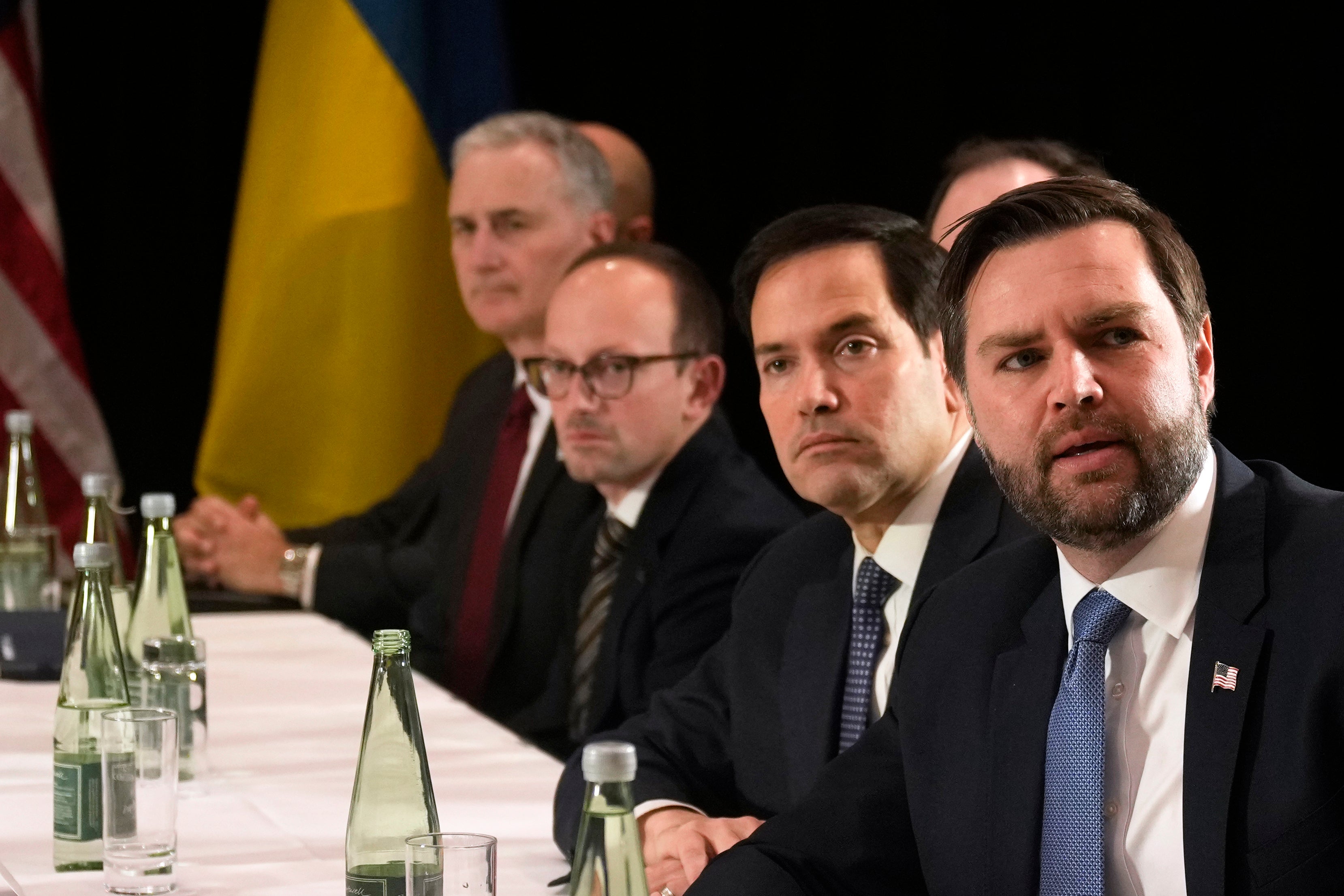After confirming Robert F. Kennedy Jr. as Health and Human Services secretary and Brooke Rollins as agriculture secretary, many senators high-tailed it to Germany for the Munich Security Conference.
Historically, the Munich Security Conference is a highly anticipated event for senators, who are attending this year as part of the bipartisan “CODEL McCain” delegation, named after the late Senator John McCain, under the leadership of U.S. Senators Sheldon Whitehouse (D-RI) and Lindsey Graham (R-SC).
McCain looms large over the Munich conference. In 2017, when Donald Trump first took office, McCain spoke about international cooperation at the conference, as if to push back on Trump’s brand of America First isolationism.
“Make no mistake, my friends, these are dangerous times, but you should not count America out, and we should not and we should not count each other out,” he said. “We must understand and learn from our mistakes. but we cannot be paralyzed by fear. We cannot give up on ourselves, and on each other. That is the definition of decadence.”
But McCain has since died, and Mitt Romney, who in 2012 called Russia the “number-one geopolitical foe” of the United States, has retired. Democratic senators are now sounding a more urgent warning to their colleagues overseas: under Trump, the United States cannot be trusted.

“There's no way to assure world leaders of anything,” Sen. Chris Murphy, a member of the Foreign Relations Committee, told The Independent. “This administration is going to be a disaster for the planet. American democracy may not survive it, and we shouldn't sugar coat it.”
Murphy went to Munich last year as the Senate debated a bill he crafted with Republican Sen. James Lankford and now former Sen. Kyrsten Sinema that would provide more aid for Ukraine and Israel in exchange for tighter border security provisions. The Senate ultimately rejected it. While the Connecticut Democrat will not be in Munich this weekend, he did not mince words.
“I wouldn't recommend any Democrats go over there to try to tell European leaders things are going to be all right,” he said. “They should plan for Trump to hand Ukraine to Putin and to hand Taiwan to China and for America to be a fundamentally weaker lesser power... four years from now.”
Trump is giving senators good reason to feel this way. On Thursday, the president said that Russia should be allowed to join the Group of Seven a decade after it expelled him. Trump also proceeded to blame Joe Biden for the war in Ukraine and for pushing NATO membership for Ukraine.
One day earlier, he said he had spoken to Russian President Vladimir Putin about “immediately” opening negotiations to end the war in Ukraine.
“It would be very hard to go to Munich this week,” Virginia Sen. Tim Kaine, a member of the Foreign Relations Committee, told The Independent. “Because once again, Donald Trump is returning to what he did during his first term, which is cozying up to adversaries and fracturing relationships with allies, we should be doing reverse.”
There are already signs that Trump’s team is angering American allies. In Munich, Vice President JD Vance infuriated attendees for delivering an anti-immigration speech and accusing Europe of “retreating from some of its most fundamental values.”
At one point, he said, “If American democracy could survive 10 years of Greta Thunberg attacks, then you guys can survive a few months of Elon Musk.”
In the same vein, Defense Secretary Pete Hegseth called a return to Ukraine’s pre-2014 borders “unrealistic” earlier this week. Hegseth later walked that remark back.
Sen. Roger Wicker, the Republican chairman of the Senate Armed Services Committee and an enthusiastic supporter of Ukraine, told Politico’s Jonathan Martin in a conversation that he was “heartened” by Hegseth walking it back.
“It was a surprise,” he said. Wicker also said Russia should not rejoin the G7. In the same vein, Sen. Thom Tillis, one of the other remaining Republican supporters in the McCain mold, told The Independent that he was getting ready to go to Munich to reassure Europe.
“The people at the table have to involve Ukraine,” he said. “This isn’t about between the United States and Putin. Putin’s a liar.”
Tillis was the swing vote in confirming Hegseth last month and he faces a tough re-election fight. But unlike Trump, he insisted that Putin was the aggressor, highlighting the rape, kidnapping and torture of Ukrainians during Russia’s war.
“Ukrainians have a right to be at the table, whether or not we go back to pre-2014 is a legitimate question. That that wasn't involved in this conflict,” he said. “But there is a lot to be said for the territory that Russia has taken and whether or not they should be allowed there, I for one don't think they should.”
But Tillis and Wicker might be on the losing side for now, representing a pre-Trump perspective of Republican foreign policy. And there is little sign that Trump will pivot toward their ideology.
Earlier this week, the Senate voted to confirm Tulsi Gabbard, who in 2022 said the war in Ukraine happened because the U.S. and NATO did not acknowledge Russia’s concerns, to be director of National Intelligence. Tillis and Wicker voted to confirm Gabbard.







